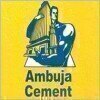C&I Engineer
C&I Engineer Interview Questions and Answers

Asked in Thermax Limited

Q. Who RTD works? How to calculate temperature using RTD?
RTDs measure temperature by correlating resistance changes in a metal with temperature variations.
RTD stands for Resistance Temperature Detector.
RTDs typically use pure platinum due to its stable resistance-temperature relationship.
The resistance of an RTD increases with temperature, following a known curve.
Common RTD configurations include 2-wire, 3-wire, and 4-wire setups for accuracy.
To calculate temperature, use the formula: T = (R - R0) / (α * R0) + T0, where R is the re...read more

Asked in Thermax Limited

Q. How do different types of flow transmitters work?
Flow transmitters measure fluid flow rates using various principles like differential pressure, electromagnetic, and ultrasonic methods.
Differential Pressure Flow Transmitters: Measure pressure drop across an orifice plate; commonly used in oil and gas industries.
Electromagnetic Flow Meters: Utilize Faraday's law of electromagnetic induction; ideal for conductive fluids like water.
Ultrasonic Flow Meters: Use sound waves to measure flow velocity; suitable for clean liquids and...read more

Asked in Voltech

Q. How many c&I instrument in work? Describe.
The number of C&I instruments in work varies depending on the project requirements and scope.
The number of C&I instruments can range from a few dozen to several hundred in a typical industrial project.
These instruments include sensors, transmitters, controllers, recorders, and final control elements.
Examples of C&I instruments include pressure transmitters, temperature sensors, flow meters, level switches, and control valves.

Asked in Tata Power

Q. What are the interlocks of a boiler?
Boiler interlocks ensure safe operation by preventing unsafe conditions through automated controls and safety mechanisms.
Low Water Level Interlock: Prevents boiler operation if water level is too low to avoid overheating.
High Pressure Interlock: Shuts down the boiler if pressure exceeds safe limits to prevent explosions.
Flame Failure Interlock: Stops fuel supply if the flame goes out, preventing unburned fuel accumulation.
Overtemperature Interlock: Triggers shutdown if the te...read more

Asked in Voltech

Q. Different between Rtd & thermocoupler? And his type work.
RTD measures temperature using the resistance change of a metal, while thermocouples measure temperature using the voltage generated at the junction of two different metals.
RTD stands for Resistance Temperature Detector, while thermocouple is a temperature sensor made of two different metals.
RTDs are more accurate and stable compared to thermocouples.
RTDs have a linear relationship between resistance and temperature, while thermocouples have a non-linear relationship.
RTDs are...read more

Asked in Ambuja Cements

Q. How does a thermocouple work?
A thermocouple is a temperature sensor that generates voltage based on the Seebeck effect between two different metals.
Consists of two dissimilar metal wires joined at one end.
When heated, a voltage is generated proportional to the temperature difference.
Common types include Type K (Chromel-Alumel) and Type J (Iron-Constantan).
Used in various applications like industrial processes, HVAC systems, and ovens.
Can measure a wide range of temperatures, from cryogenic to high heat.
C&I Engineer Jobs

Asked in Thermax Limited

Q. How does a load cell work?
A load cell is a transducer that converts force or weight into an electrical signal for measurement and monitoring.
Working Principle: Load cells operate based on the principle of strain gauges, which change resistance when deformed under load.
Types of Load Cells: Common types include hydraulic, pneumatic, and strain gauge load cells, each suited for different applications.
Applications: Load cells are widely used in industrial scales, weighing systems, and material testing equ...read more
Interview Experiences of Popular Companies
Calculate your in-hand salary
Confused about how your in-hand salary is calculated? Enter your annual salary (CTC) and get your in-hand salary

Reviews
Interviews
Salaries
Users